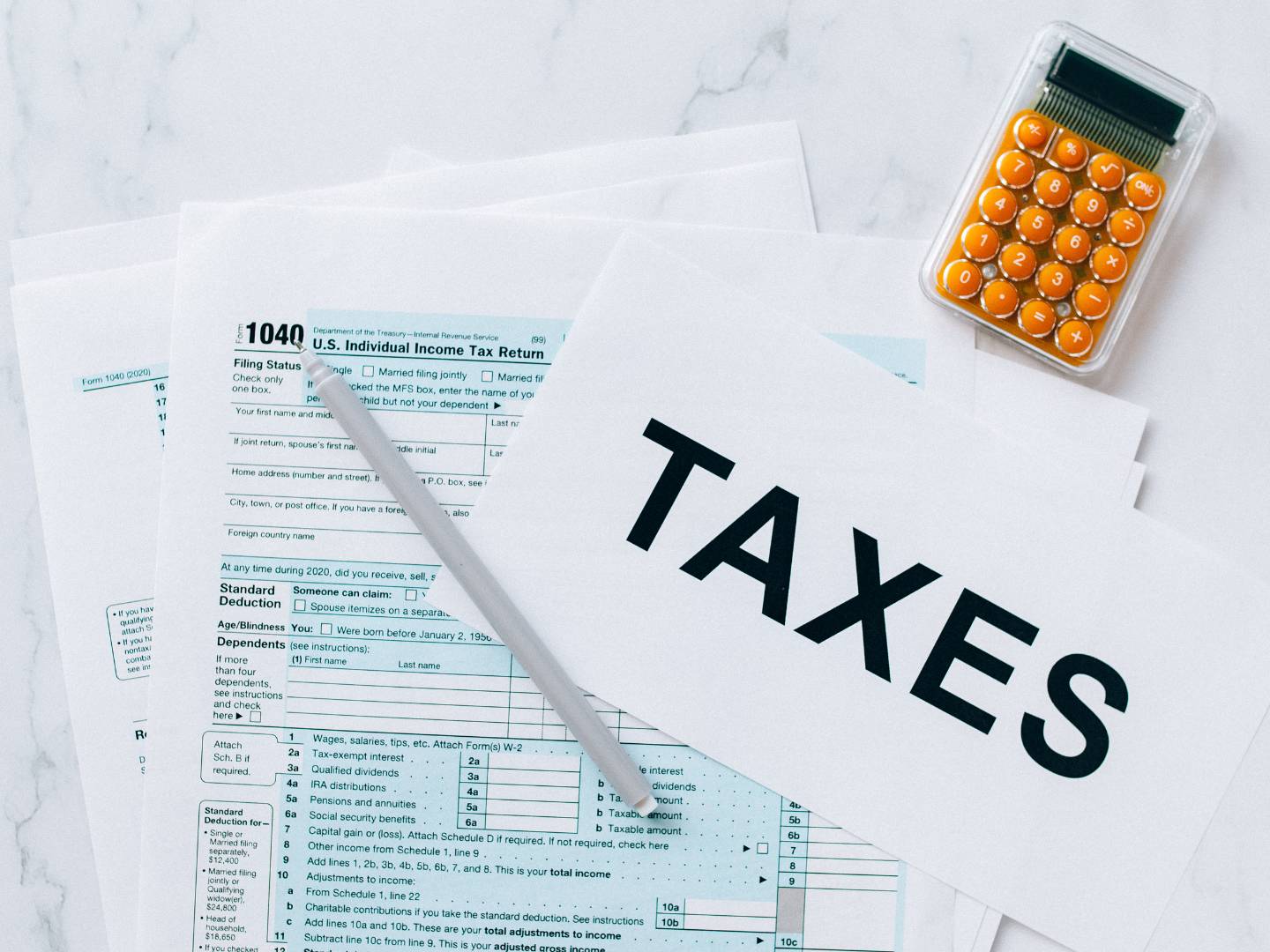How to pay taxes in Belgium as a foreigner
Learn what kind of taxes you can expect to pay in Belgium as an individual and how to submit your tax return.
Angelina
As soon as you move to Belgium and register with your municipality, you’ll receive your national number, which acts as your tax ID, social security number, and national registration number. Now, as an official Belgian taxpayer, you can expect a brown envelope with your annual tax return form in the month of May.
But don’t worry if you didn’t figure out how to pay taxes in Belgium just yet. We’ll throw some light on how it works and what you can expect!

Who has to pay tax in Belgium?
If you’re over 18 years old and earn income in Belgium, you must pay Belgian taxes. However, the amount you pay depends on whether or not you’re considered a resident for tax purposes.
Resident taxpayer
You’re considered a resident for tax purposes in Belgium if you’re registered with the local municipality and Belgium is your centre of social and economic interest (e.g. your family lives in Belgium).
On top of the income tax, you also have to pay municipal tax and a social security contribution of 13.7%.
Non-resident taxpayer
You’re a non-resident taxpayer in Belgium when the centre of your social and economic interests is abroad because you’re in Belgium for a limited period (of less than 183 days a year).
Now that you know what taxes you have to pay, let’s look at the process of annual tax returns!
Filing an annual tax return in Belgium
Both residents and non-residents in Belgium must file an annual tax return even if they don’t have any income to declare. This is important because even with no income, you can enjoy a tax refund by declaring any payments made for tax-deductible items, such as childcare or mortgage payment.
If it’s your first time filing a tax return in Belgium, you’ll receive a brown envelope with your annual tax return 5 weeks before the deadline. But 9 of 10 Belgians file their tax return online as it’s a simpler procedure. Many fields are pre-filled as most of the taxes are deducted at the source.

How to file taxes in Belgium online
As a resident, you can access your declaration on Tax-On-Web at the beginning of May. Non-residents can access it by the middle of September.
- Open MyMinfin.be and click on ‘log in’ (meld u aan/ identifiez-vous)
- Choose your preferred authorisation method: your electronic ID card and a card reader, Itsme app, or a token if your ID card doesn’t have a chip.
- Choose ‘my tax return (mijn aangifte / ma déclaration (Tax-on-web)).
- Click on ‘submit my tax return (rentrer ma déclaration / mijn aangifte indienen).
- Click on ‘fill’ (invullen/remplir).
- If you’re a salaried employee, your data will likely be pre-filled. Check if all the information is correct.
- Declare any deductions or foreign accounts.
- Click on 'calculate taxes' (berekenen van de belastingent/calculez votre impô) to see how much tax you’ll have to pay or how much you’ll be refunded.
- Tick the box 'I will keep the necessary supporting documents (included in the explanatory notes) available,' sign and click on ‘send.’

Have you made a mistake? Don’t worry, after your tax return is submitted online, you can still correct your information before the deadline. But keep in mind that you can only edit your tax return form once!
We recommend downloading Itsme app which will make your administration and banking in Belgium easier.
When do you need to file your Belgian tax return?
You’ll receive a notification to file your Belgian tax return in May. The deadline for filing your tax return online is usually around the 15th of July. The deadline for submitting your tax return by mail is usually around the 30th of June for residents and the 25th of November for non-residents.
If you fail to submit your declaration in time, you risk a fine between €50 and €1,250 and a penalty of 10% to 200% of the tax.
Income tax in Belgium
If you're a resident taxpayer, you'll pay personal income tax in Belgium on your worldwide income. Your employer will automatically deduct income tax from your salary each month.
Non-resident taxpayers in Belgium are only taxed on income they’ve earned in Belgium, directly or indirectly.
Belgium tax brackets
Belgium is the third-highest-taxed country in the EU, making the personal income tax rates high. On average, Belgians spend about 40% of their income on taxes.
Here're the Belgium income tax brackets in 2024:
| Income bracket | Belgium income tax rate |
|---|---|
| Up to €15,200 | 25% |
| €15,200 – €26,830 | 40% |
| €26,830 – €46,440 | 45% |
| €46,440+ | 50% |

Municipal taxes in Belgium
The municipal tax rate for your municipality depends on the commune of your residence and ranges from 0 to 10%. However, for non-resident taxpayers, the regional tax always equals 7%.
You’ll find the amount of municipal tax you need to pay at the end of your tax assessment form.
Tax on interest from savings in Belgium
In Belgium, you’ve to pay a flat tax of 15% on income from your interest on a savings account. Your bank ‘withholds’ this tax off your interest payment.
However, everyone has a tax-free allowance of €980 as an individual or €1,960 as a married or officially cohabiting couple. That means that the 15% tax rate will only be applied to the amount of interest left after the deduction of the tax-free allowance.
Why are taxes so high in Belgium?
Belgian tax rates are some of the highest in the world as the Belgian government uses tax revenues to fund their world-class healthcare, affordable education and social security programs, such as family, pension, or unemployment allowances.
So Belgium's high tax rate is worth it for the security and comfort you'll enjoy while living there!
Tax benefits in Belgium
In 2023, you're allowed to have a personal tax-free income of up to €10,160 yearly. Besides that, there’re some other ways to reduce your income tax in Belgium, such as:
- Having certain expenses (e.g. childcare, alimony, mortgage, pension savings)
- Having certain types of income (e.g. foreign income, pensions and substitute income)
- Being an incoming employee or researcher, eligible for 30% ruling.
Special tax regime for expats in Belgium (30% ruling)
As of 1 January 2022, Belgium introduced a special tax regime for incoming taxpayers and researchers which is popularly referred to as the 30% ruling.
This regulation allows for 30% of your salary to become tax-exempt, which is capped at up to €90,000 a year. This means that expats with annual salaries above €300,000 won’t benefit from this regime.
The status is granted initially for 5 years and can be extended for 3 more years.
To qualify for the expatriate tax regime, you must meet the following conditions:
- you’re recruited directly from abroad
- in the 5 years prior to taking up the job in Belgium, you
- haven’t been a resident of Belgium
- haven’t lived within 150 km of the Belgian border
- haven’t been subject to non-resident income tax in Belgium
- you’re a researcher or employee/director within a multinational group or non-profit organisation
- if an employee or director: you earn a minimum gross salary of €75,000
- if a researcher: you possess a specific scientific master’s degree or have the equivalent of 10 years' professional experience
Taxes for people with a foreign income
If you have foreign income, including pension in your home country, you should check if Belgium has a relevant double taxation treaty to avoid paying taxes in 2 countries.

Taxes for working students in Belgium
Working students in Belgium can save on taxes by paying lower social security contributions. According to Belgian law, students who work under 600 hours per year, only need to pay a solidarity contribution of 2.71% of their gross pay.
On average, this allows you to work 9 hours a week, which is less than the 20-hour limit per week for students on a Belgian student visa. Any salary above the set threshold will be taxed at a regular rate.
Taxes for people with children
In case you’ve children, your tax-free allowance can be extended beyond your personal allowance:
| Number of children | Exemption |
|---|---|
| 1 | €1,850 |
| 2 | €4,760 |
| 3 | €10,660 |
| 4 | €17,250 |
| Over 4 | €1,850 for every extra child |
While arranging your taxes as an expat can certainly be complicated, this guide will help you on that journey. If you need further support be sure to reach out to a certified Belgian tax specialist.
This article is for informational purposes only.
Please reach out to content @housinganywhere.com if you have any suggestions or questions about the content on this page. For legal advice or help with specific situations, we recommend you contact the appropriate authorities.
Related articles
In this article
Find your home in Belgium
Find accommodation in cities across Belgium. Search for your accommodation now!
Start my Search

